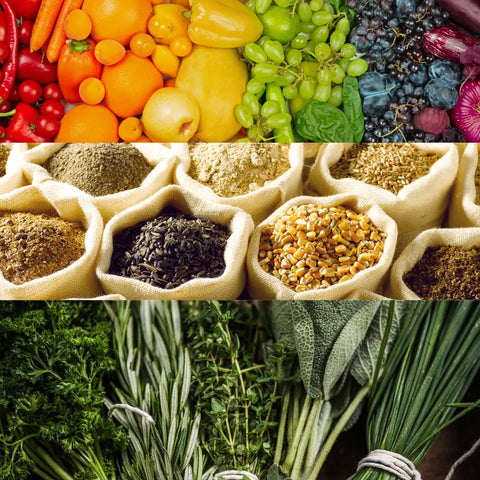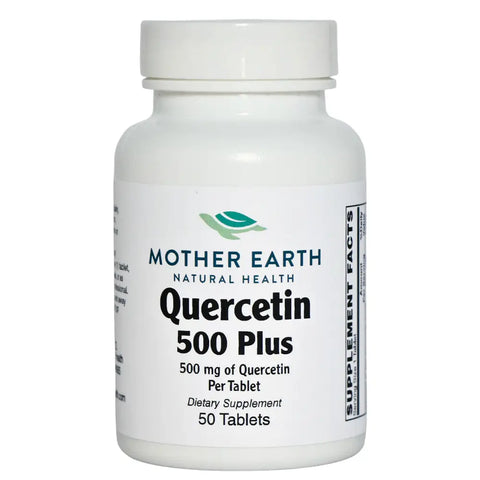Quercetin, a flavonoid found in various plant foods, has gained significant attention for its potential health benefits. This natural compound has been studied extensively and is known for its ability to boost immunity and fight inflammation. In this article, we will delve into the world of quercetin, exploring its sources, health benefits, and how to incorporate it into your diet.
What is Quercetin and its sources?

Quercetin is a plant pigment belonging to the flavonoid family. It is found in a wide range of fruits, vegetables, grains, and herbs. Some of the richest sources of quercetin include apples, berries, onions, kale, broccoli, and green tea. Quercetin is also available in supplement form, which can be a convenient way to ensure an adequate intake.
The health benefits of Quercetin
Quercetin offers a multitude of health benefits due to its powerful antioxidant and anti-inflammatory properties. Research suggests that quercetin may help protect against chronic diseases such as heart disease, cancer, and neurodegenerative disorders. Additionally, quercetin has been found to support cardiovascular health, improve exercise performance, and enhance brain function.
Quercetin and immunity
One of the most notable benefits of quercetin is its ability to enhance immune function. Quercetin has been shown to stimulate the production and activity of immune cells, helping to strengthen the body's defense against infections and diseases. Moreover, quercetin exhibits antiviral properties, making it a valuable ally in the fight against viral infections such as the common cold and flu.
Quercetin and inflammation
Chronic inflammation is at the root of many diseases, including arthritis, diabetes, and cardiovascular conditions. Quercetin possesses potent anti-inflammatory properties that can help reduce inflammation in the body. By inhibiting the production of inflammatory molecules and suppressing the activity of inflammatory enzymes, quercetin aids in alleviating inflammatory symptoms and promoting overall health.
Quercetin-rich foods and supplements

Incorporating quercetin-rich foods into your diet is a great way to reap the benefits of this powerful compound. Some top food sources of quercetin include apples, berries, citrus fruits, onions, leafy greens, and green tea. If you find it challenging to consume sufficient quercetin through diet alone, supplements are available in various forms such as capsules, powders, and liquids. It is important to consult with a healthcare professional before starting any new supplements.
How to incorporate Quercetin into your diet
Adding quercetin-rich foods to your daily meals is a simple and effective way to boost your intake of this beneficial compound. Start by including more fruits and vegetables in your diet, such as apples, berries, onions, kale, and broccoli. Try incorporating green tea into your morning routine or experiment with new recipes that feature quercetin-rich ingredients. Remember to choose organic sources whenever possible to minimize exposure to pesticides and other harmful chemicals.
Quercetin dosage and safety considerations
While quercetin is generally safe for consumption, it is essential to follow recommended dosage guidelines. The appropriate dosage of quercetin can vary depending on factors such as age, health status, and individual needs. It is advisable to consult with a healthcare professional or a registered dietitian to determine the correct dosage for you. Additionally, pregnant and breastfeeding women should exercise caution and seek medical advice before taking quercetin supplements.
Quercetin research and studies
The health benefits of quercetin have been extensively studied, with numerous research papers supporting its effectiveness. Studies have shown that quercetin can reduce blood pressure, lower cholesterol levels, and improve insulin sensitivity. Furthermore, research indicates that quercetin may have anti-cancer properties and could help prevent the growth and spread of cancer cells. However, more research is needed to fully understand the mechanisms and potential applications of quercetin.
Conclusion
Quercetin, a natural compound found in various plant foods, holds immense potential for boosting immunity and fighting inflammation. From its sources and health benefits to dosage considerations and research findings, quercetin offers a promising avenue for improving overall health and well-being. By incorporating quercetin-rich foods into your diet and considering appropriate supplementation, you can harness the power of this secret weapon to support your immune system and combat inflammation.
CTA: Start incorporating quercetin-rich foods into your diet today and experience the potential benefits for yourself. Remember to consult with a healthcare professional before introducing any new supplements into your routine. Take charge of your health and unlock the power of quercetin!

